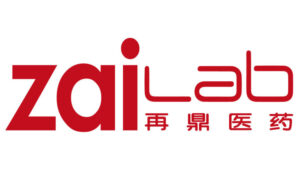 Zai Lab is a global biopharmaceutical company founded in 2014 and based in China and the U.S.. Led by Chairperson and CEO Dr. Samantha Du, the company now has more than 2,000 employees internationally.
Zai Lab is a global biopharmaceutical company founded in 2014 and based in China and the U.S.. Led by Chairperson and CEO Dr. Samantha Du, the company now has more than 2,000 employees internationally.
Focusing on developing novel therapies for oncology, autoimmune disorders, infectious diseases, and neurological disorders, it has built a broad pipeline of late-stage drug candidates, five of which have been approved and launched in China. The company also has internal research and development capabilities to advance its discovery pipeline.
The company is strategically partnering with prominent biopharma organizations such as Amgen, GSK, Seagen, BMS, Mirati and Deciphera. Concurrently, Zai Lab is building a proprietary pipeline across therapeutic areas such asoncology, autoimmune disorders, infectious diseases, and neuroscience.
In this email Q&A, we heard from Josh Smiley, president and chief operating officer of Zai Lab, and Dr. Harald Reinhart, president and head of global development, NSAIID at Zai Lab. The responses below are attributed jointly to both executives.
Can you explain from a high level how Asia-based companies are impacting global drug discovery and development?

Josh Smiley
We’ve seen a shift in the past few years from there being really good companies in China focused on healthcare delivery, manufacturing, and CRO services to the point where there is now true pharma and biotech innovation happening. This transformation has been impressive. There are now, for example, China biotech companies that are the same caliber as companies in the Bay Area and Cambridge.
Notably, a recent industry analysis identified an increasing number of deals between innovative Asia biotechs and Western biotechs or multinational companies. The analysis stated that this flow is “a departure from the long-standing trend of partnering with China-based companies for access to the China and other Asia markets for commercial-stage drugs.”
Can you say more about Zai Lab’s partnership strategy?
Zai Lab is actively partnering with companies globally to in-license and/or co-develop best-in-class and first-in-class therapies in important disease areas including lung, gastrointestinal, ovarian and cervical cancers, autoimmune disorders, and psychiatric and neurological conditions such as schizophrenia and Alzheimer’s disease psychosis.
A good example of Zai’s clinical operation capabilities is bemarituzumab, a potential first-in-class FC-optimized monoclonal antibody that is designed to block fibroblast growth factors from binding and activating Fibroblast Growth Factor Receptor 2b (FGFR2b). Zai, partnering with Amgen, contributed global FPI in the phase 2 FIGHT3 study of bema, generating high-quality data recognized by both the FDA and the China CDE for Breakthrough Therapy Designations. In July of this year, we announced the first patient was treated in the mainland China portion of the global registrational, phase 3 FORTITUDE-101 study.

Dr. Harald Reinhart
In September 2023, Zai Lab successfully launched VYVGART (efgartigimod alfa injection) for generalized myasthenia gravis (gMG) in China, the first and only approved FcRn antagonist for gMG patients. There are approximately 170,000 patients living with this disease in China, and VYVGART has the potential to significantly improve the quality of life for many of these patients and their caregivers. Zai participated and continues to drive patient enrollment in phase 3 studies for several autoimmune diseases and helped accelerate the global enrollment process for efgartigimod, enrolling a significant number of patients in the Greater China portion of the studies.
In April 2023, Zai Lab announced its global licensing agreement with MediLink, a drug development company based in China focused on developing next generation antibody-drug conjugates (ADCs) and related technologies. Through this collaboration, Zai expanded its global lung cancer pipeline with ZL-1310, a novel DLL3 ADC program. This partnership demonstrates Zai’s commitment to develop innovation from China that has the potential to impact patients worldwide.
In December 2019, Zai Lab launched ZEJULA (niraparib) in Greater China, increasing patient access to the only PARP inhibitor approved as monotherapy for first-line and recurrent maintenance therapy for ovarian cancer patients regardless of biomarker status in China. We have established ZEJULA as the current market leader in the PARPi class for ovarian cancer in China.
Overall, we are part of 50+ ongoing or planned clinical trials globally – including 12 ongoing pivotal studies.
What is Zai Lab’s approach to integrating neuroscience, autoimmune, and infectious disease research (NSAIID)?
Zai Lab’s President and Head of Global Development, Neuroscience, Autoimmune & Infectious Diseases (NSAIID), Dr. Harald Reinhart, is an infectious disease specialist by training. He came to Zai six years ago to create the new NSAIID therapeutic area. Previously, he was head of Infectious disease/immunology/transplantation at Novartis. Dr. Reinhart said, “Inflammation and immunology are being recognized as central defense mechanisms that are involved to some degree in almost all disease processes. With biologicals now used widely in oncology and neurology, along with rheumatologic conditions and in vaccinology, our understanding of genetics and of signaling pathways has grown exponentially in the last two decades. We now recognize commonalities among many diseases that are traditionally separated anatomically but share so many immunologic features. We are still at the beginning of a journey that will eventually define the immunologic contributions to myriads of conditions. Without question, as we gain a more complete understanding of the molecular, genetic, cellular derangements, we will also find novel, more rational approaches to address these diseases in a truly targeted ‘surgical’ fashion.
Positioning neuroscience, autoimmune and infectious disease discovery and development under one umbrella is enabling Zai to take a more holistic approach to identifying and advancing therapies within these areas. It allows us to cross-pollinate new discoveries, create efficiencies and address diseases with significant patient need.
Dr. Reinhart says he doesn’t see a barrier between the three areas or a need to compartmentalize R&D, because they are all connected. As an example, he cites the fact that the responses to interactions between individuals’ innate immunity and the adaptive immune system are exactly what is triggered by bacterial infection and viruses. Or that most of the diseases that affect the central nervous system have an immunological component – if they’re not completely driven by immune processes. The growing field of immuno-oncology provides an obvious example of the connection between the areas of immunity and oncology.
Are there any specific projects or research initiatives that exemplify this unified approach?
One of the best examples is efgartigimod, which straddles several therapeutic areas: from neurology (gMG, CIDP) to nephrology and ophthalmology.
Our multi-indication approach for efgar creates synergies because there is a large component of transferable skills and knowledge. The benefits of this interdisciplinary approach affect not just clinical development, but also impact and direct research and diagnostics.